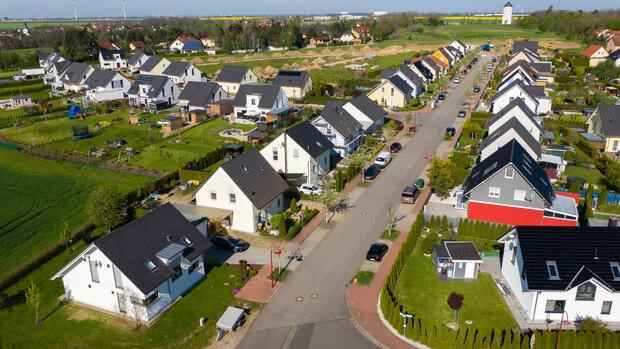Income inequality in Germany has decreased slightly since 2016.
(Photo: dpa)
Berlin The incomes of the middle class in Germany developed positively in the years before the corona crisis, so that income inequality has decreased. However, there were losses during the pandemic. This is shown in the annual distribution report of the Institute for Economic and Social Sciences (WSI) of the union-affiliated Hans Böckler Foundation.
“In the 2000s, the decline and shrinking of the middle class were a frequent topic, also in scientific analyzes,” commented the Scientific Director of the WSI, Bettina Kohlrausch, on the results. “Their situation relaxed in the later 2010s.”
The net household income of the middle class rose by seven percent in real terms between 2010 and 2018. In the case of the bottom tenth of income earners, however, household incomes have meanwhile fallen and in 2018 only returned to the level of 2010. The incomes of the top ten percent rose slightly more than that of the middle class.
Nevertheless, inequality, as measured by the Gini coefficient, has decreased slightly since 2016. This assumes the value 0.29 for 2018. If it reaches zero, every employee receives the same amount; if it reaches one, one person receives the entire income.
Top jobs of the day
Find the best jobs now and
be notified by email.
WSI researchers Aline Zucco and Anil Özerdogan evaluated data from the Socio-Economic Panel (SOEP) for the distribution report, a representative annual repeat survey in around 16,000 households. Data on income are available until 2018. The middle class includes economically active persons whose net household equivalence income is between 70 and 150 percent of the median income in Germany and thus between 16,000 and 35,000 euros per year.
Less fear of losing a job
The fear of losing a job has decreased significantly in this group. In 2010, 54 percent of those surveyed for the SOEP worried about losing their job, in 2019 it was only 30 percent. It is true that worries about one’s own financial situation have also decreased. But they were recently shared by 56 percent of those surveyed. “The fact that the fear of unemployment and financial insecurity have become significantly separated shows that gainful employment is not a long-term guarantee of social security even for members of the middle class,” emphasized the WSI director.
Above all, fears that the money might not be enough in old age are widespread even in the middle class. 63 percent of those surveyed were worried about retirement provision in 2019, but at least nine percentage points less than at the beginning of the decade.
Since the SOEP data does not cover the pandemic years, the WSI also used the Hans Böckler Foundation’s labor force survey. Around 5000 people took part in the last wave from the end of June to mid-July 2021. Workers who have a needs-weighted monthly net household income of between 1,500 and 3,500 euros are classified as the middle class.
Around half of them experienced a loss of income due to the corona pandemic. In the lower middle class with a household income of 1500 to 2000 euros, the proportion is 54 percent higher than in the higher income groups.
Active industrial policy to protect well-paying jobs
At least for this part of the middle class, the previously relatively good development in the corona years 2020 and 2021 could have reversed – with the possible result of increasing social inequality again, the WSI concludes. The largest proportion of the labor force who had to accept losses due to Corona, at a good 62 percent, is found in low-income households with an equivalent income of up to 1500 euros.
In order to secure the financial situation of the middle class, the WSI makes specific demands on politicians: An active industrial policy is necessary to strengthen the manufacturing sector, said Kohlrausch: “Because this is where the jobs are created where the good wages are paid.”
The climate-friendly restructuring of the economy must also be designed through investments in such a way that a sustainable employment base in Germany is maintained in the long term.
In addition, an expansion of co-determination and collective bargaining coverage contribute to secure jobs and higher wages.
In any case, the future federal government should resist the temptation to expand incentives for marginal employment even further, warns the union-affiliated institute. Because socially unsecured mini-jobbers were among the main sufferers of the corona crisis.
More: Private assets rise to a record high in the corona crisis
